OP-ED
Indian comrades glaringly absent from the ANC’s KZN provincial executive committee
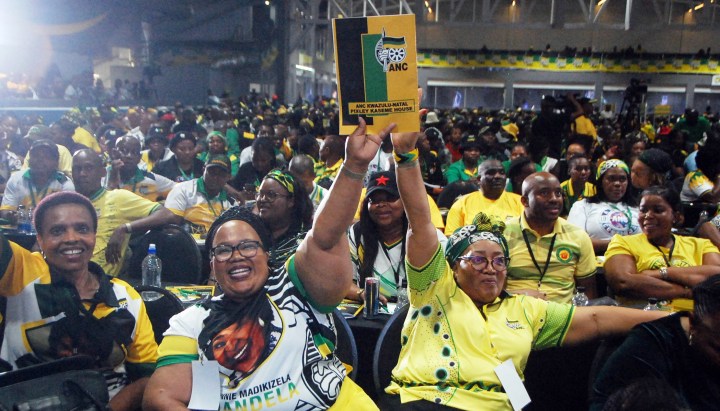
Whatever arrangement was brokered between the ‘Talibans’ and Zandile Gumede’s eThekwini region is unlikely to have been inspired by the ideals envisaged in the ‘Three Doctors’ Pact’.
While much of the hype during the weekend’s ANC KwaZulu-Natal elective conference was about the emergence and clean sweep of the so-called “Talibans” faction, the historic project to build a non-racial society was all but reduced to an irritating relic.
It was particularly glaring as it happened a few days after former president Thabo Mbeki expressed concern about diminishing participation by other races in ANC activities.
“We have to be a non-racial movement,” he said at the memorial service for former acting secretary-general Jessie Duarte in Johannesburg last week.
Under the theme, “Unity, Renewal to serve the people of KZN”, the Durban gathering was meant to reinvigorate all the constituent parts of the Mass Democratic Movement ahead of the critical national and provincial government elections in 2024.
Historically, the former Natal Indian Congress (NIC) was in the anti-apartheid struggle trenches with the ANC, to the extent that Nelson Mandela and leaders of his generation always drew inspiration from the famous “Three Doctors’ Pact”.
It was a joint declaration of cooperation signed in 1947 by Dr AB Xuma, president of the ANC; Dr GM Naicker, president of the NIC and Dr YM Dadoo, president of the Transvaal Indian Congress.
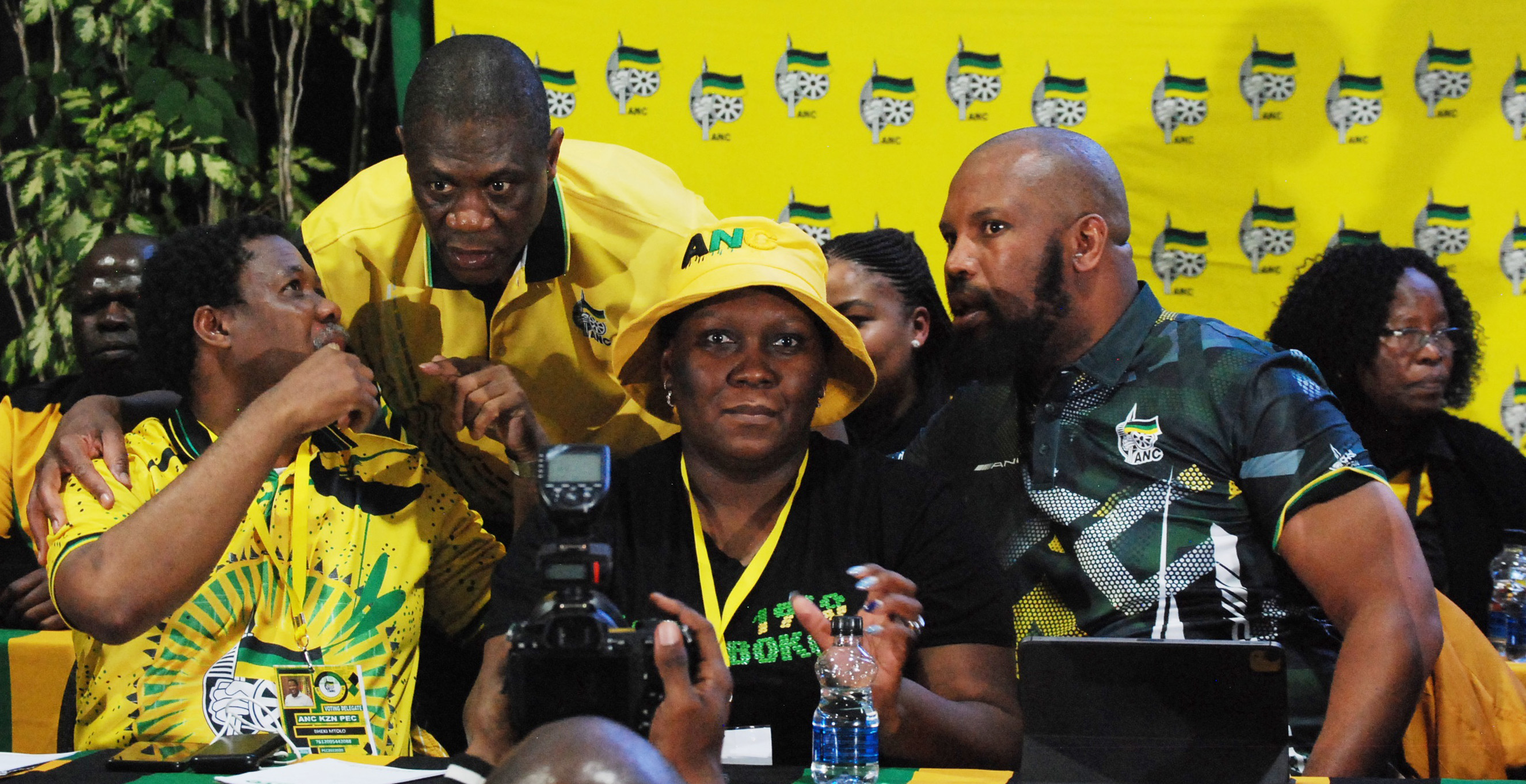
The new KZN ANC leadership (from left), provincial secretary Bheki Mtolo, deputy chair Nomagugu Simelane-Zulu and provincial chairperson Sboniso Duma with (rear, second from left) ANC acting secretary-general Paul Mashatile. (Photo: Phumlani Thabethe)
It was about all “non-Europeans” uniting in the struggle against the racist policies of the time, and prepared the ground for the Congress of the People that drafted the seminal Freedom Charter in 1955.
Since the dawn of democracy, it was this non-racial character of the ANC that was evident in the selection of people for various leadership roles in the National Assembly, the KwaZulu-Natal legislature and various municipalities.
Properly, it was in line with the selfless contribution of leaders of different races — among them prominent Indian professionals too numerous to mention here — towards the new dispensation.
Whither Indian comrades?
But observing the weekend conference, older comrades could be forgiven for wondering: forget about the pseudo-Talibans; where have all the Indian comrades gone?
The answer came when, out of the 1,607 eligible voting delegates, 30 people had to be elected to serve on the provincial executive committee.
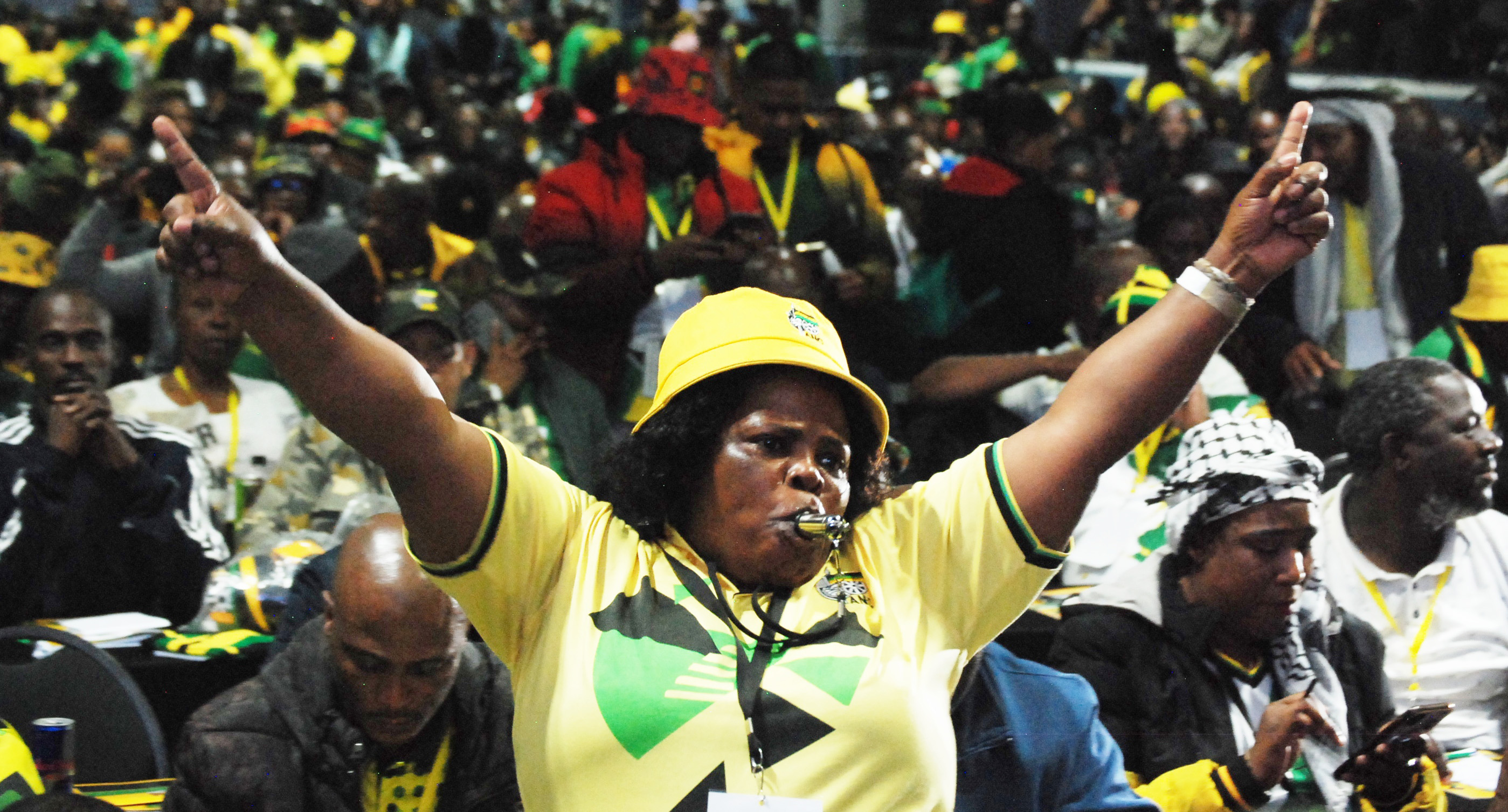
KZN ANC delegates celebrate as the new leadership is announced at the Olive Convention Centre in Durban on 24 July 2022. (Photo: Phumlani Thabethe)
Out of the 45 names that went into the ballot box for those limited seats, all were black Africans. It was a brutal process that saw Sihle Zikalala garner only 665 endorsements, while the top-ranked member, Siboniso Duma, secured 930 votes.
Incumbents in an election have the capacity to weigh up possible outcomes because they have a bird’s eye view of what is happening on the ground in the build-up to conferences.
Zikalala and his trusted lieutenant, former provincial secretary Mdumiseni Ntuli, would therefore have been aware that support for the ANC in areas previously reserved for Indians in KwaZulu-Natal had dwindled.
The local government elections in November last year confirmed that the former Indian townships such as Chatsworth were firmly in the grasp of the Democratic Alliance and a host of smaller parties that have ganged up to deprive the ANC of the majority say in the influential eThekwini metropolitan municipality.
Even in eThekwini’s Ward 11, where former president Jacob Zuma’s son, Duduzane, is ANC branch chairman, the DA won.
The reduced number of seats won in municipalities has meant that the ANC had limited scope to address racial balances on its proportional lists.
July unrest
The July unrest and the criminality that engulfed the predominantly Indian area of Phoenix, north of Durban, further polarised Indo-African relations within the ANC. While the leadership, including Zikalala, characterised the killings there as a massacre, Indian leaders aligned to the Mass Democratic Movement have consistently cautioned against such labels, emphasising that criminal acts of a few individuals cannot be blamed on the community as a whole.
The previous leadership of the ANC in KwaZulu-Natal has been careful to co-opt Indian comrades to the provincial executive committee, and to have them in the executive council in government as well.
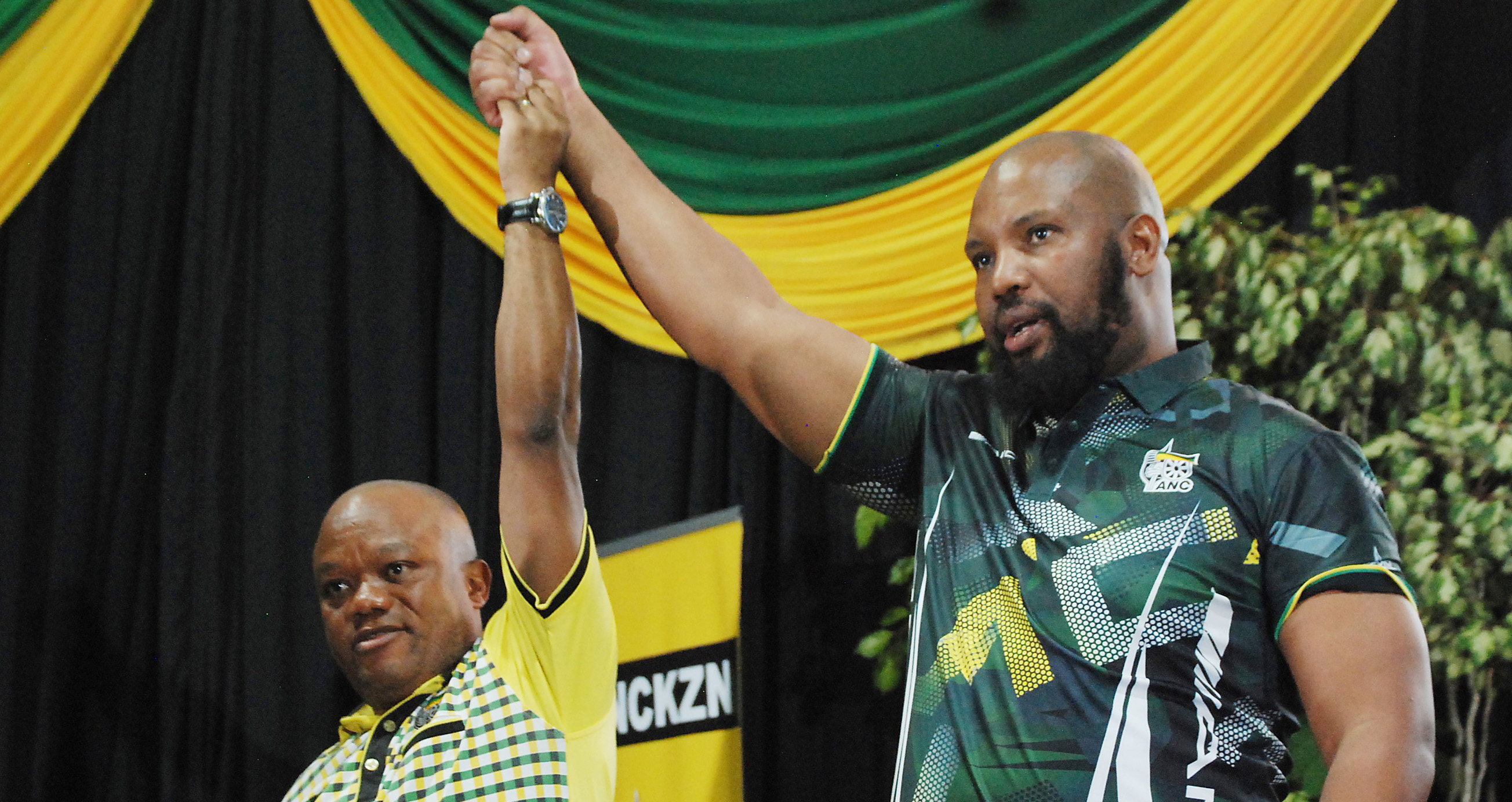
Former KZN ANC chairperson Sihle Zikalala congratulates new chairperson Sboniso Duma after the announcement of the results in Durban on 24 July 2022. (Photo: Phumlani Thabethe)
Siboniso Duma has given an assurance that Zikalala will not be dismissed as premier any time soon.
However, what is beyond doubt is that the powerful eThekwini region that supported his campaign was investing to secure its own interests, and Zikalala was their prime target for removal.
Zandile Gumede
That something was bubbling under the surface became clear when Zandile Gumede’s name emerged as a top candidate for the provincial treasurer post.
The former eThekwini mayor — who had also been elected leader of this most powerful ANC region in the country — duly declined nomination to comply with the national leadership’s directive that those facing criminal charges should not avail themselves for election.
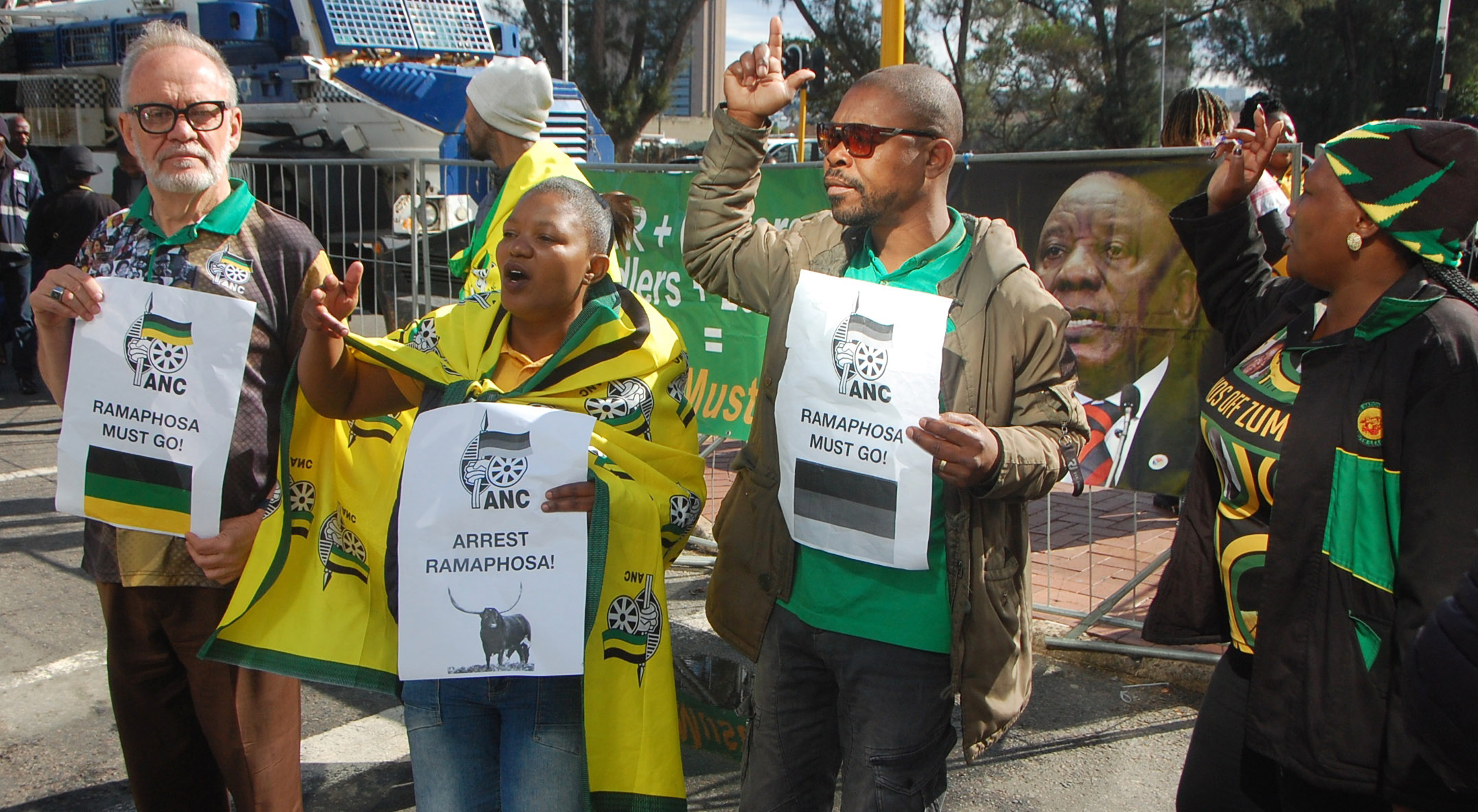
Supporters of former president Jacob Zuma, including Carl Niehaus (far left) protest outside the Olive Convention Centre in Durban. (Photo: Phumlani Thabethe)
The point could not have been made more forcefully: the “real” leader, with the support of the branches, was being prevented from taking her rightful place. That is why the Talibans have vowed to have the ANC’s step-aside rule scrapped at the policy conference at the weekend — despite the gravity of the charges faced by some of the leaders they seek to protect.
Whatever arrangement was brokered between the Talibans and Gumede’s eThekwini region is unlikely to have been inspired by the ideals envisaged in the “The Three Doctors’ Pact” — hence the state the ANC is in and the disappearance of those who would be comrades across the racial divide. DM

















 Become an Insider
Become an Insider
Not white members either, except that homeless Afrikaaner chappy hanging around in a shack outside Zuma’s place. ANC has nothing to offer anyone anywhere except patronage.
The DA for a long while has and still is the most representative party in SA
Four legs good. Two legs better. Bad deal.